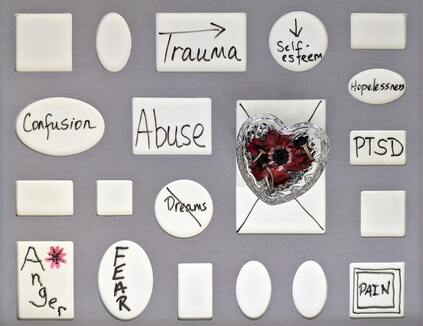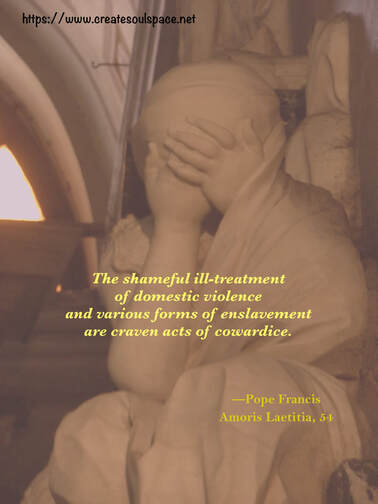|
Not all abusers are created equal. Even though tactics and techniques often follow the same pattern in many toxic relationships, the underlying causes and motivations for mistreatment vary (and remember, causes are not the same as excuses). For example, Lundy Bancroft claims abusive behavior is a conscious choice, whereas Donald G. Dutton has observed through research from neurobiology as well as from analyzing the characteristics of certain personality disorders that “the simplistic notion that all abuse perpetrators choose to be abusive is contradicted by the work on subtypes and on impulsivity.”(1)  (Unsplash.com) (Unsplash.com) Be on the lookout! I’ll write more on impulsivity in a future post. The reason some authors may claim all abusers are narcissistic manipulators who purposely mistreat their partners while others take a more empathetic view is likely because they’re focusing on a certain type of perpetrator rather than differentiating between the four basic subtypes. These subtypes have been developed by leading researchers and clinicians such as Neil Jacobson and John Gottman, Amy Holzworth-Munroe and Gregory Stuart, Donald G. Dutton, L. Kevin Hamberger and James E. Hastings, as well as others. In a very simplistic nutshell, the four types of abusers are:
 1 Peter 5:8 1 Peter 5:8 Type I abusers tend to be extremely aggressive and physically violent, as well as displaying a high level of emotional and psychological violence, but their overt aggression isn’t limited to the home. These are the types of men who not only batter their wives as a means of control and subjugation, but they’re also publicly and socially aggressive.(2) They see absolutely nothing wrong with their behavior, have little or no empathy, often have a criminal record, are accepting of violence and tend to display antisocial traits.(3) Domestic violence expert Don Hennessy, director of the National Domestic Violence Intervention Agency (located in Ireland), calls these antisocial abusers “psychophiles” because they groom their victims in the same way pedophiles groom their chosen targets. He describes this type of abuser as “somebody who manipulates the mind of their intimate partner for nefarious purposes without the partner or the community being aware of it.”(4) That’s a sinister and scary thought, and it’s easy to see why these perpetrators rarely change. Type II abusers keep their aggression behind closed doors. These abusers “are likely to show poor social skills and communication,”(5) are more apt to slap their partners rather than using weapons such as knives, and are “the least likely to engage in psychological and sexual abuse.”(6) They are considered “infrequent batterers” and use violence on average about six times per year rather than in a cyclical manner, and they report “less conflict and more satisfaction in their marriages.”(7) Type III aggressors, the dysphoric/borderline/survival-based, tend not to abuse consciously with a set goal of control and subjugation. Instead they’re subconsciously driven by a deep, rooted, and terrifying fear of abandonment, which is the foundational characteristic of borderline personality disorder (BPD). They harbor a great deal of shame, feelings of unworthiness, and a toxic terror of being unlovable. This profound fear causes them to rage at their loved ones, emotionally and verbally abuse them, and due to their own cognitive distortions, often use the manipulative tactics of gaslighting, crazy-making, and circular talk in order to appease or hide from their out-of-control emotions. This is all done to avoid feelings of shame and to try to keep their partner from leaving them, and it’s the behavior that fuels the abuse cycle. Ironically, however, their abusive behaviors and characteristic extreme jealousy tend to cause their fears to come true as partner after partner feels the need to separate from their toxic actions. It’s common for them to have suffered childhood emotional neglect, and they tend to be impulsive. They often experience depression, exhibit anxiety-based rage, have a fearful/angry attachment style, focus their fury onto their intimate partner, and are less likely to use physical violence—however, they’re extremely abusive on psychological, emotional, and verbal levels.(8) Type IV, low-level anti-social abusers, are similar to Type I aggressors yet without full-blown antisocial traits, and therefore not as extreme. Although less violent than Type I, they’re more physically violent than Type II abusers, and unlike Type II and Type III abusers, their aggression isn’t necessarily limited to the home.(9) Given these subtypes of aggressive personalities, it’s easy to see how all abusers aren’t the same. Some, with a great deal of professional help, a full admittance of their harmful behaviors without excuse or blame, and the “manly courage” to stop using the “shameful ill-treatment” and “craven acts of cowardice” of their controlling, abusive ways, can change.(10) This takes a lifetime of diligent determination, an internal, authentic desire for transformation, and the humble ability to seek and stick with therapeutic help. Certain types of abusers—such as Type II, family only, and Type III, those with survival-based, dysphoric/borderline traits—can make positive and lasting personality and relationship improvements. As for Type I and IV …. Well. It’s nice to think anyone can transform into a better version of themselves, but typically these types of aggressors have no interest in change. They see nothing wrong with their behavior, and they enjoy the control their abusiveness seems to give them. In my posts, I’m most often writing about the Type III, cyclical abuser. Authors tend to gravitate toward one type of an abuser based on their own research, experience (whether personal or through working with survivors) or educational preferences. Type III is my area of expertise, so I focus on this subcategory more than the others. (1) Lundy Bancroft, Why Does He Do That? Inside the Minds of Angry and Controlling Men; Donald G .Dutton, The Abusive Personality: Violence and Control in Intimate Relationships, 2nd Edition, 15.
(2) Dr. Christauria Welland, “Violence & Abuse in Catholic and Christian Families: Preparing an Effective and Compassionate Pastoral Response,” online course at https://health-transformations.learnworlds.com. (3) Donald G. Dutton, The Abusive Personality, 14 and 9. See also Christauria Welland, Psy.D. and Neil Ribner, Ph.D., Healing from Violence, 31. (4) Don Hennessy, How He Gets Into Her Head: The Mind of the Male Intimate Abuser, 43 and 267. (5) Esther Calvete, “Mental Health Characteristics of Men Who Abuse Their Intimate Partner,” https://scielo.isciii.es/pdf/sanipe/v10n2/revision.pdf. (6) Amy Holzworth-Munroe and Gregory L. Stuart, “Typologies of Male Batterers: Three Subtypes and the Differences Among Them,” https://psych.indiana.edu/documents/holtzworth-munroe-and-stuart-1994.pdf. (7) Amy Holzworth-Munroe and Gregory L. Stuart, “Typologies of Male Batterers: Three Subtypes and the Differences Among Them.” Christauria Welland, Psy.D. and Neil Ribner, Ph.D., Healing from Violence, 31. (8) Donald G. Dutton, The Abusive Personality, 13; Christauria Welland, Psy.D. and Neil Ribner, Ph.D., Healing from Violence, 31-32; Randi Kreger and Paul T. Mason, MS, Stop Walking on Eggshells: Taking Your Life Back When Someone You Care About Has Borderline Personality Disorder, 3rdEdition. (9) Amy Holzworth-Munroe and Gregory L. Stuart, “Typologies of Male Batterers: Three Subtypes and the Differences Among Them,” https://psych.indiana.edu/documents/holtzworth-munroe-and-stuart-1994.pdf; Christauria Welland, Psy.D. and Neil Ribner, Ph.D., Healing from Violence, 32. (10) United States Conference of Catholic Bishops, “When I Call for Help,” https://www.usccb.org/topics/marriage-and-family-life-ministries/when-i-call-help-pastoral-response-domestic-violence. Pope Francis, “Amoris Laetitia,” https://www.vatican.va/content/dam/francesco/pdf/apost_exhortations/documents/papa-francesco_esortazione-ap_20160319_amoris-laetitia_en.pdf, 54.
0 Comments
Your comment will be posted after it is approved.
Leave a Reply. |
AuthorJenny duBay, Trauma-Informed Christian life coach specializing in healing from betrayal trauma and domestic abuse. |




